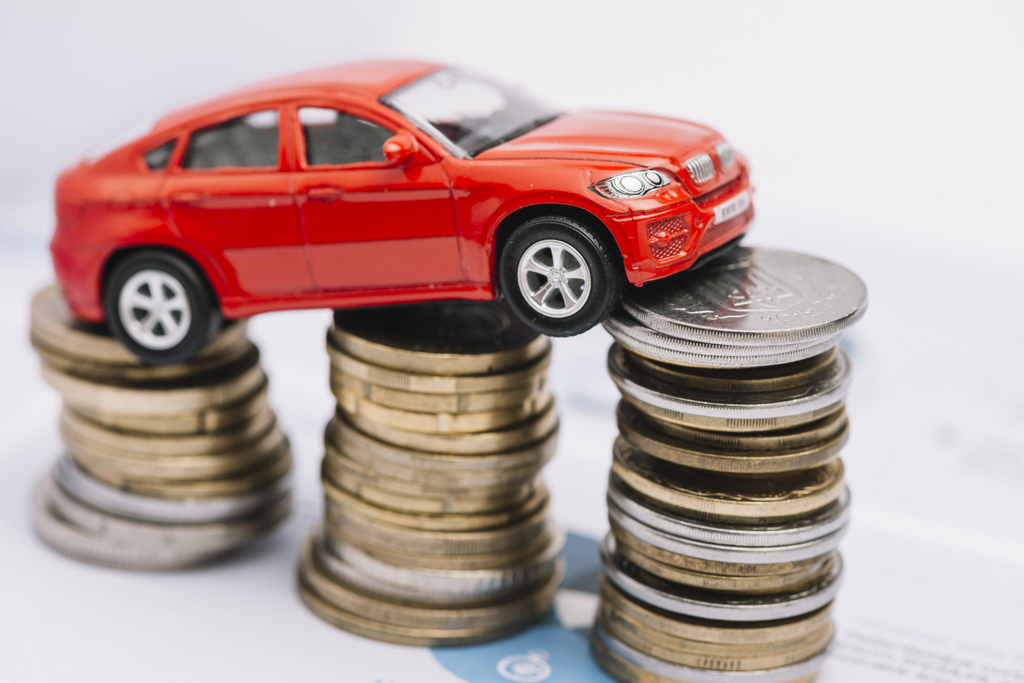Introduction
Buying your first car in Dubai is exciting, but it’s easy to overlook key factors beyond just the price. Many first-time buyers focus only on their budget, but choosing the right car requires more than that.
Here’s what you need to consider:
- New vs. used cars – Which one suits your needs and budget?
- Hidden pros and cons – Every car and brand has strengths and weaknesses.
- Beyond looks and recommendations – Don’t rely only on brand reputation or advice from friends.
Without proper research, buying a car can lead to unexpected costs and regrets. In this guide, we’ll cover essential first-time car buyer tips in Dubai to help you make a smart, informed decision.
1. Set a Realistic Budget: What Can You Afford?
First, you must be careful about how much you want to put into it. Remember that your car expenses shouldn’t exceed 15% of your monthly income. Then don’t go above that amount to put lots of pressure on yourself for the first car. The first question you should answer is:
How Much Car Payment Can You Afford?
The sticker price of a car is just the beginning. When you’re planning your purchase first car, the following tips will help you decrease the pressure on yourself:
- Monthly loan payments (how much you can pay for it)
- Insurance premiums (which tend to be higher for first-time buyers in dubai)
- Fuel costs (based on local fuel prices and the car’s fuel efficiency)
- Routine maintenance (like oil changes, brake pads, and tire replacements)
- Registration fees and taxes
Some other questions that help choose the best car:
- Do you live in the city, suburbs, or a rural area? (City drivers often prefer smaller, fuel-efficient cars that are easy to park, while rural drivers might need something with more ground clearance.)
- Do you foresee carrying passengers frequently? (Consider a roomier option if you regularly drive family, friends, or coworkers; a compact sedan might feel cramped.)
- Will you need a car primarily for work, everyday use, or weekend adventures? (Daily commuters might prioritize fuel economy, while outdoor enthusiasts could want AWD or extra cargo space.)
- Will you be loading and hauling items? (Even if you’re not moving furniture every weekend, consider how often you carry groceries, sports gear, or work equipment.)
- How much parking space do you have at home and work? (In tight city garages, a smaller car is a blessing — don’t overlook this detail.)
- Does the car comfortably and safely fit your stature? (If you’re tall, legroom is critical. If you’re on the shorter side, visibility and seat adjustability matter.
2. New or Used? What’s Right for You?
New cars might look exciting at first. New car, new model, new features. Old cars, lower prices, lower insurance, and slower depreciation. But are these all you’re searching for? Of course not. You want to make a smart choice, and here’s where a dilemma comes to put you in trouble again. In this part, we talked about the pros and cons of each, so you can choose either of them based on your actual needs.

Pros and Cons of Buying a Used Car as a First-Time Car Buyer in Dubai:
- Pros:
- Warranty coverage for major components, offering peace of mind.
- Modern technology and safety features include advanced safety systems and the latest infotainment.
- Customizable options to tailor the car to your preferences.
- It is less likely to need repairs due to being brand new.
- Cons:
- Depreciates quickly, losing up to 40% of its value in the first few years.
- Higher upfront cost, making it more expensive than used cars in Dubai.
Pros and Cons of Buying a Used Car as a First-Time Car Buyer in Dubai:
- Pros:
- Lower upfront cost, offering more value for your money due to depreciation.
- Slower depreciation means you lose less value over time.
- Lower insurance premiums.
- Vehicle history reports help make informed decisions.
- Cons:
- Higher risk of repairs, especially if bought from a private seller.
- Limited or no warranty, leaving you responsible for repairs.
- Older technology is possibly missing the latest features and safety tech.
When choosing between a new or used car, consider how long you plan to keep the car and your risk tolerance for repairs. If you plan to drive your car for a long time, a new car might make more sense, as you’ll get full warranty coverage and less likelihood of immediate repairs. However, suppose you’re looking for a more affordable option and willing to take on some repair risk. In that case, a well-maintained used car can offer great value, especially if you buy from a reputable dealer with a vehicle inspection and history report.
Also, don’t forget to factor in financing options. While new cars may have lower financing rates due to incentives, used cars might be harder to finance at the same rates. If you plan on financing, do the math to compare the total cost of ownership over the car’s life.
3. Body Type Breakdown: Hatchbacks, Sedans, SUVs/MPVs
Do you remember the first questions we asked you about your need to buy a new car? “Do you live in the city, suburbs, or a rural area?” Here’s a quick help for you: Which kind of body will be helpful for you?
| Type | Best For | Pros | Cons |
| Hatchback | City driving, small families | Easy parking, fuel-efficient | Limited space |
| Sedan | Daily commutes | Comfortable, stable | Less cargo space |
| SUV | Families, adventurers | Roomy, higher view | Higher fuel cost |
| MPV | Larger families | Flexible seating | Bulkier than sedans |
4. Fuel Type Matters: Gasoline, Hybrid, Electric
You’ll increase or decrease your monthly budget based on what kind of fuel type you choose. This option is called the hidden cost of owning a car. Each option has pros and cons:
- Gasoline: Flexible, but prices fluctuate.
- Hybrid: Balance between fuel savings and range.
- Electric: Lower running costs but higher upfront price and charging limitations in some areas.
Based on your region’s weather, will you need an all-wheel drive?
Cold weather can reduce electric vehicle range.
5. Shop for Loans First — Not the Car
When should you start shopping around for a car loan?
Before you visit any dealerships.
Lenders like banks, credit institutions, and online providers offer different rates. Pre-approval can save you money and stress.

6. Choosing Where to Buy: Dealership vs. Private Seller vs. Online
You may want to purchase your first car based on what others suggest, but what is the best option?
- Dealerships provide reliability, warranties, and financing options. They often sell certified pre-owned cars that are inspected and come with manufacturer-backed warranties. However, prices tend to be higher, and you may face sales pressure.
- Private sellers can offer lower prices with more flexibility in negotiation. However, you won’t get warranties, and the car might need repairs sooner. There’s also a risk of hidden issues, so an inspection is essential.
- Online platforms offer a wide range of cars to compare and the convenience of shopping from home. But you can’t physically inspect the car before buying, and extra delivery costs may exist. Some online sellers offer return policies or warranties, which can reduce risk.
Should you do your car shopping online?
Online platforms allow you to compare prices but always inspect the car physically (or get an independent inspection).
7. Features & Safety: What Matters?
When considering features, focusing on what’s essential for your safety and comfort is crucial. Prioritize these over luxuries:
- ABS Brakes: They prevent your wheels from locking during braking, improving control in emergencies.
- Airbags (Front, Side, Curtain): Ensure you have a comprehensive airbag system to protect you in a crash.
- Blind-Spot Monitoring: This system alerts you when a vehicle is in your blind spot, enhancing safety while changing lanes.
- Backup Camera: Helps avoid accidents when reversing, especially in tight spaces or with limited visibility.
- Lane-Keeping Assist: Alerts you or gently steers the car back if you unintentionally drift out of your lane.
Pro Tip: While opting for high-tech add-ons like a sunroof or heated seats may be tempting, focus on safety features that could save your life. If you’re considering a used car, ensure these features still function properly.
8. After-Sales Service
You sure don’t want to buy a car, and when it breaks down, you’ll left alone with mechanics who can’t diagnose the problem. Choosing a car from a brand known for reliability and ease of repair will help minimize downtime and reduce maintenance costs. The following tips are also helpful:
- Proximity of authorized service centers: A dealership nearby can save you time and money on maintenance.
- Average cost of basic repairs: Some cars, especially luxury brands, may require expensive parts and labor.
- Ease of finding spare parts: Popular models have a wide availability of spare parts, making repairs quicker and cheaper.
9. Don’t Ignore the Hidden Costs
Beyond the initial price of the car, you’ll need to factor in these long-term costs of car ownership:
- Taxes & Registration: Depending on your location, these can add up. Research your area’s fees to plan.
- Fuel: Consider how fuel-efficient the car is. If you drive frequently, a fuel-efficient model will save you money.
- Insurance: Get a quote before buying. Sports cars or luxury models tend to have higher premiums.
- Routine Maintenance: Regular servicing keeps the car in good condition, but some cars require more frequent maintenance than others.
- Tires: Budget for tire replacement, especially if you drive in harsh conditions.
10. Reviews & Ratings Matter
Reviews are always helpful in any field; cars are no exception. Read the reviews carefully, especially when you want to buy a new car and don’t know the features. But it’s important to get reviews from reliable sources, including:
- Expert Reviews: Check sites like Car and Driver or Edmunds for in-depth evaluations of the car’s performance, features, and safety.
- Owner Reviews: Forums and online owner reviews can reveal long-term reliability, hidden issues, and real-world performance.
- Crash Test Ratings: Safety is paramount. Check ratings from IIHS or NHTSA to understand the car’s safety in various crash scenarios.

11. Test Drive & Final Negotiations
When you finally test drive the car, don’t rush. Take it on different types of roads to get a true feel for the car. Also, pay attention to:
- Visibility and Blind Spots: Are there any areas you can’t see easily? Safety should always come first.
- Brake Responsiveness: The car should stop quickly and smoothly.
- Steering Feel and Acceleration: Make sure the car drives the way you expect—comfortably and with enough power.
- Cabin Noise: A noisy cabin can make long drives unpleasant. Check how much road noise enters.
- Infotainment Ease of Use: Technology should enhance your driving experience, not distract from it.
During the final negotiations, don’t just focus on the price. Consider any additional fees (taxes, dealer charges) and try to negotiate them.
12. What About Electric Vehicles?
EVs are becoming a viable option but may not be a good choice for first-time buyers. For first-time buyers who want to buy EVs, it’s recommended to consider a hybrid model first to get used to the technology and charging process before going fully electric. Also consider:
- Local charging infrastructure: Ensure plenty of charging stations are nearby, especially if you live in a rural area.
- Real-world range: Check how far the EV can travel on a single charge. Many manufacturers overstate the range in ideal conditions.
- Battery replacement costs: Over time, batteries degrade, and replacing them can be expensive. Consider this when assessing the total cost of ownership.

13. Biggest Mistake First-Time Car Buyers Make
The tips we talked about in this article are the most important factors to consider for first-time buyers. You’ll regret it if you skip any of those steps. In this part, we want to ensure you know all aspects of buying a new car.
- Buying based on appearance alone: Make sure the car fits your practical needs (e.g., space, fuel economy) before deciding.
- Ignoring the total cost of ownership: Don’t just focus on the monthly payment; look at long-term costs like fuel, maintenance, and insurance.
- Accepting the first financing offer: Shop around for the best rates. Dealerships may not always offer the most competitive loan terms.
- Skipping the test drive: Always drive the car before committing. It’s essential to get a feel for it.
- Forgetting to check insurance rates in advance: Some cars have high premiums. Make sure you’re comfortable with the cost.
14. What Car is Best for First-Time Buyers?
While there’s no one-size-fits-all answer, good starter cars typically:
- Are affordable to buy and maintain: Look for models known for low-cost repairs and fuel efficiency.
- Have good safety ratings: Safety features and high crash test scores should be a priority.
- Offer strong resale value: Consider how easy it will be to sell the car when ready for an upgrade.
- Fit your specific needs: Whether it’s commuting, hauling, or family trips, choose a car that suits your lifestyle.
Pro Tip: Start with a compact car or a reliable used model that fits your budget. As a first-time buyer, you don’t need anything too fancy—focus on practicality and reliability.
Conclusion
You need first-time car buyer tips in Dubai, if you’re buying your first car in Dubai. Buying your first car is an exciting milestone, but it doesn’t have to be overwhelming. Take your time with the decision. A well-thought-out purchase will lead to fewer regrets down the road.
Ask yourself questions about which car may be suitable for you, considering the number of people using the car, hidden ownership costs, the place you live in, what you want from buying a car, where you want to go with it, etc.
Whether you end up with a brand-new model or a reliable used vehicle, the key is approaching the process with clarity — knowing what to look for, what to ask, and where to compromise. Remember, your first car is more than just transportation; it’s your companion for countless journeys ahead.
